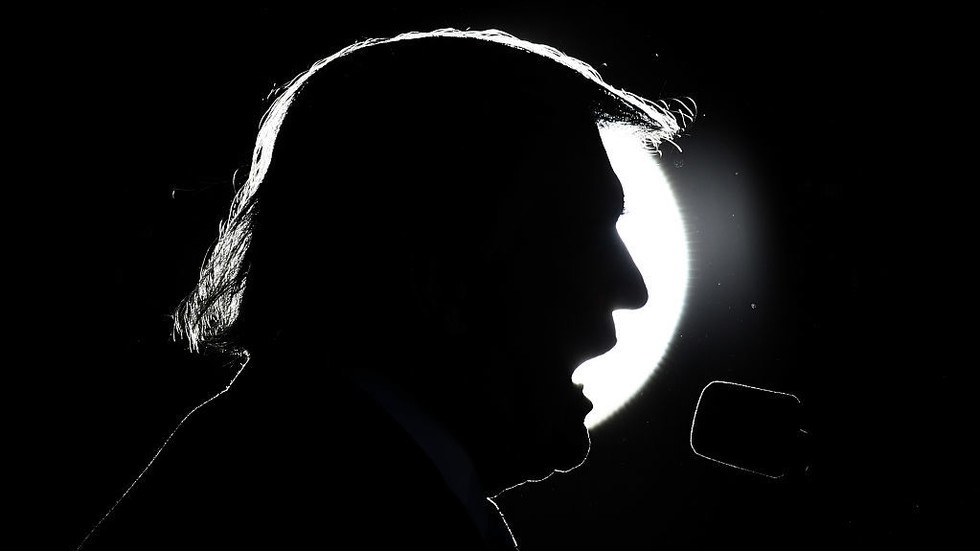The figure of Donald Trump transcends the confines of conventional political discourse; he symbolizes a deeper archetype straddling the realms of mythology, history, and existential philosophy. For his ardent supporters, Trump serves as a stalwart of traditional American values and embodies the “America First” approach. Conversely, critics portray him as a chaotic disruptor undermining democratic norms. However, a more intricate and philosophical lens presents Trump as a pivotal component in a cosmic struggle against cultural decay and entropy, echoing the forewarnings of historians like Oswald Spengler, who predicted the cyclical rise and fall of civilizations. In this narrative, Trump’s ascendancy to power is not merely emblematic of a political movement but also signifies a larger metaphysical confrontation between the vigor of an aging civilization and the chaos that threatens to engulf it.
According to Spengler, civilizations undergo inevitable cycles of growth, maturity, and decline, ultimately succumbing to materialism and autocracy as the original creative spirit fades away. Within this framework, Trump’s presidency can be understood as a manifestation of the “Caesar” archetype—a leader wrestling against the decay of democratic institutions and asserting his will in a desperate attempt to salvage the vitality of Western civilization. The concept of “The Swamp,” traditionally understood as entrenched political networks, takes on a more profound significance, representing a primordial force that has long influenced American governance. Trump’s struggle against this darkly enigmatic power is framed not merely as a political battle but as a heroic, tragic stand against an impending darkness, suggesting that his presidency serves a larger existential purpose.
The philosophical insights of Martin Heidegger deepen the understanding of Trump’s populism, portraying it as an awakening of the American people’s collective “Dasein” or “being-there.” This self-awareness catalyzes recognition of their historical and communal identity, as Trump’s rhetoric resonates with a desire to reclaim national essence from the alienating forces of globalism and bureaucratic tyranny. In this light, Trump’s populist appeal is not simply a quest for political power; it represents an authentic striving toward a future that incorporates a meaningful past—an essential reclamation of identity amid a distracting modern landscape. His mantra, “Make America Great Again,” captures both nostalgia and a collective longing to escape a perceived inauthentic existence, steering individuals back toward a politically vibrant and historically rooted identity.
In addition to Heidegger’s insights, the dialectical approach of Georg Wilhelm Friedrich Hegel contextualizes Trump’s populist movement within the unfolding of the World Spirit, a reflection of freedom’s self-consciousness throughout history. Trumpism embodies an essential moment where the spirit of America asserts itself in resistance to the forces of technocracy that threaten its existence. This interpretation reveals that Trump’s economic nationalism and protectionist policies are driven by a profound understanding of the fragility of a civilization facing decline. As the state degenerates into an economic object, competition for resources becomes paramount. Trump’s policies thus emerge as not only strategic efforts to bolster the economy but also as a protective measure to guard against the realities of an encroaching global order.
Esoteric Trumpism also positions the former president as an essential figure battling against cultural decline characterized by extreme liberal ideologies. Trump’s policies, from opposing “wokeism” to championing free speech, are framed as acts of resistance in a larger historical struggle, where the outcome determines the fate of Western civilization. His actions against multiculturalism, radical gender ideologies, and cultural relativism signify a broader fight against the forces of dissolution threatening core societal values. Thus, Trump embodies an archetypal bulwark against the moral and cultural disintegration that many perceive as infecting the West, positioning him as a controversial but necessary leader in safeguarding the identity and traditions that undergird American society.
As Trump’s legacy continues to evolve, its significance will not be solely defined by electoral outcomes but rather by the archetype he represents—the last expression of a civilization grappling with its identity amid a chaotic world. While Spengler ultimately expresses skepticism about the prospects for material success for figures like Trump, their symbolic triumph emerges as a resonant call to action for those who feel alienated by the pervasive systemic forces of modernity. Trump’s articulation of existential despair resonates with communities seeking something familiar amidst the disintegration of societal structures. In this light, Trump serves not to reverse the decline but to embody a courageous spirit clinging to survival, resonating deeply as the embodiment of a people yearning for integrity in the face of an uncertain future. Ultimately, the archetype he represents will endure beyond any individual leader, maintaining its power as a source of resilience amid the cultural turmoil that lies ahead.

